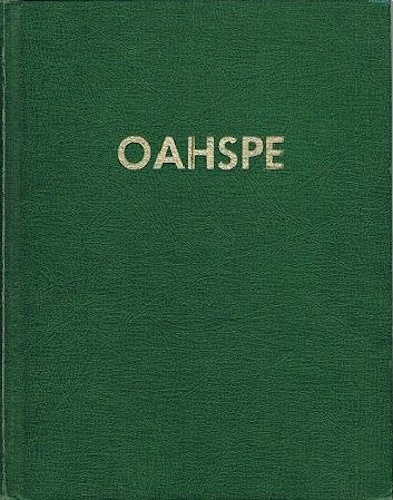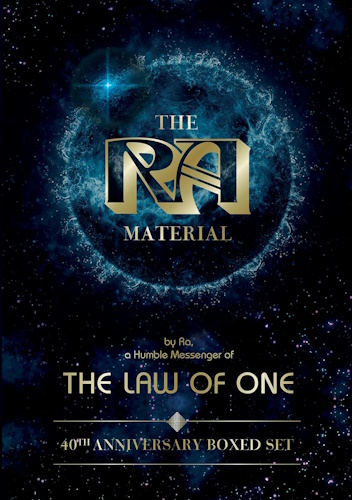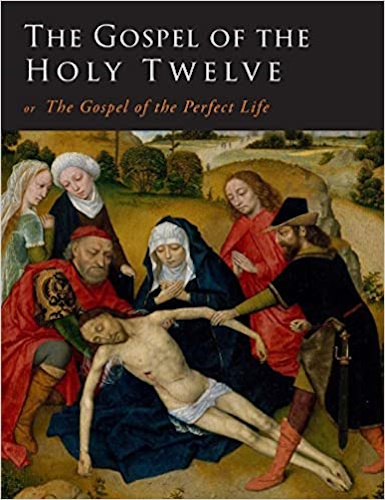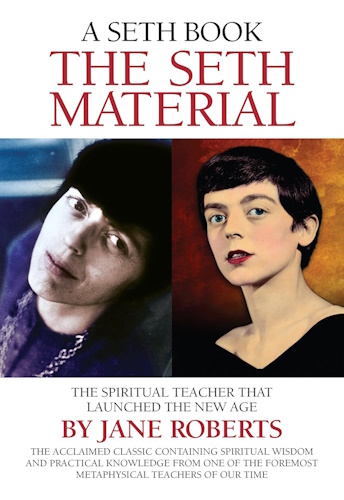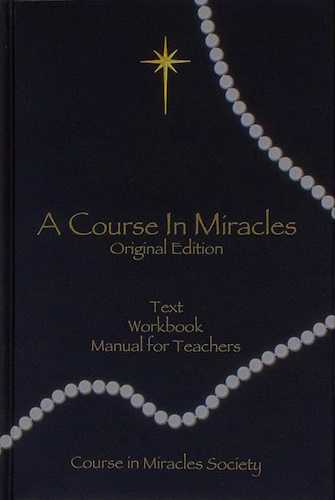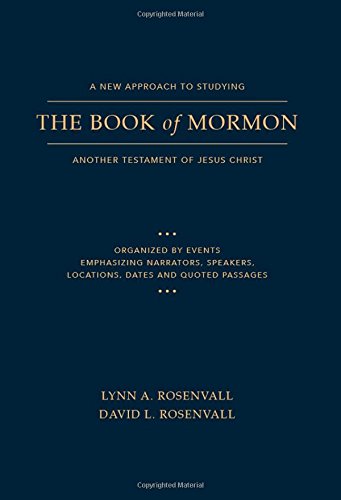
![]()
![]()
Book of Saphah
Tablet of Biene
(Poit.)
1. A'SU (Panic). A man in aboriginal state; before he used words; before he congregated. A very young child; one that knows no word of expression. The race of man in its first age, as applied to Corpor (the earth). A'su, the first habitable age. A circle with a central point. According to the place of A'su on the tablets so shall the interpreters understand. (Poit.)
2. M'asu (Panic). With words came war. In congregating men, the liberty of one interfered with another. Mas'su (Kii). A circle with the four evil corners. Let no man say, I will not sow on the earth, lest I be bound; but be ye fruitful and multiply; for this is the fullness of earth and heaven. (Abraham.) The symbol of M'asu was given to the married, but to the barren the high priest gave S'pe (Gau). Jehovih said: Call not any man evil; but call ye him unripe fruit (Kosmon). Because man cut himself off from Me and choose war, condemn him not, but deliver ye him (Moses).
3. Ex'su (Panic). Nation against nation. A symbol of threat; one king against another. Anra'mainyus sent the symbol of a circle with four cross-corners and a point, over all the earth. (Vede).
4. Ugh'sa (Panic). Standing armies. Is not justice accorded to him who is mightiest? (Fus). They not only waged war, but in times of peace they maintain armies ready for more war. Come, therefore, away from them, ye that have faith in Jehovih, and I will deliver you into another country (Abraham). Rather than that ye be impressed in war, come whither I will lead, and dwell in peace (Brahma). A symbol of standing armies (Gau).
5. Ugh'gad or U'ghad (Panic). A war to establish a certain Ghad (God). Ye not only desire to make slaves of men on earth, but to bind them unto your Ghad after death. (Craosha to the druks.) They fight for the king, being his slaves; they fight for their Ghad, being his vermin (Brahma). An evil man saith, I will war for Egypt, for this is my country; but I say unto you, all countries are Jehovih's (Moses). Be not slaves to any country, nor to any king, nor to a Ghad, but serve the Great Spirit. (Abraham.) A nationality, a symbol. (Gau.)
6. Ort'n (Panic). By the sea; or sea-land.
7. Ort'm (Panic). By the forest; or forest-land.
8. Alef (Panic). A new beginning. Those that were delivered from evil spirits were given Alef as a sign of power (Poit). Alef was a gift of the high priest (Zarathustra). A letter of the Ebra alphabet. When a man desires to reform himself from drunkenness, the Miji gave him Alef, a strengthening symbol (Brahma).
9. Iga (Panic). Ego (Latin). I, myself (English). A profile of the eye and ear. An emblem of the sounds ai and e (Gau), or i and e, or e, or g. Two equivalents to portrait of an eye. In hieroglyphs, a radical.
10. Om (Panic). The negative of Jehovih. The female. That that projecteth is positive. That that receiveth
p. 606
p. 607
is negative (Gau). Let those that desire to receive spiritually ask of Om; and those that go forth in might return thanks to Eolin (Zarathustra). Power cometh not by supplication, but by going forth; spiritual gifts come not by going forth with might, but by waiting in supplication (Brahma). Nevertheless the ALL ONE is but ONE, but with two attributes (Kosmon). Brahma said: O OM, give thou to my soul; O EOLIN, I am going forth to labor; be thou with me. (Vede.) The ever present OM, the ever present ELOIH, said: Two attributes gave I, the All-self, to every man-self, the Om and the Na (negative and positive), that he might hold discourse within himself. (Vede.) In seeking a wife, see to it that OM is her transcendent virtue; otherwise she will be as a thorn in thy side. (Abraham.) Until a man have OM in the ascendent he shall not hear nor see the Great Spirit. (Zarathustra.) Let your young men seek employment that calleth not forth NA, but rather OM. (Brahma.)
11. Tae (Panic). A representative man. The universal prayer of mankind. Also one who is chosen by etherean spirits for an earth cycle; as Zarathustra, Abraham, Brahma, Moses, Capilya, Confucius, etc. I provided for the nations in their darkness, saith Jehovih. For I bring the earth into a light region in the firmament, and I send My etherean angels to deliver them out of darkness and bondage. In My name raise they up men with eyes to see and ears to hear, and I proclaim unto all the inhabitants of the earth (Kosmon). Mankind.
12. Sih (Panic). One whose faith is low. One whose spirit acknowledgeth the gift of spirits, but not the All Person. Three persons have I found; one believeth only in earthly things (material); one in spirits of the lower heavens (spiritist), and one who hath faith in the All Creator (i.e., the Faithists). (Confucius.) They all rise to the destiny they have chosen. (Confucius.) The worshiper of a Savior is Sih (Vede). The worshiper of a God born of a woman is Sih (Vede). Save a man put away the Sih that is in him he can not rise to My emancipated heavens, saith Jehovih. Save a man put away the Pan (materialism) that is in him, he can not rise even in the lower heavens; but his spirit after death remaineth in his own house, saith Jehovih. A symbol of a horizontal spear.
13. Yi (Panic). A hollow crescent. Emblem of wisdom. A badge of honor bestowed by a high priest (Vede). One of the sacred sounds in the Vedic language. [Not pronounced Wy, but Yi'h.] Tu'shiy'a (Fonece). Tushiy-yah (Hebrew). The secret pass-word to the dark chamber (Kii).
14. I'yi (Panic). Life, per se. I'yii (Zerl). Chiy (Gau). Ka'y (Fus). Cha'iy (Fonece). Chai (Ebra). Chai (Hebrew). Tc'yi (Vede). Hy'id'n (Chine). On'yi'h (Algonquin). A tree without substance. Tree of Life. A place of registry; a family record. The origin of I'yi (life), who knoweth? (Panic.) Jehovih said: Infants had gone to heaven before the earth was, and had grown to be wise men and women, but they had not tasted of the fruit of the Tree of Life; and when the earth was ripe unto giving mortal birth to man these angels alighted on the earth. Jehovih said unto them: Eat ye not of the Tree of Life, lest in that day ye become bound to the earth. In that day angels could clothe themselves with corporeal forms by majesty of their own wills, and in innocence they mingled with the people A'SU, who were of the earth, and they were tempted for Wisdom's sake, and did eat of the fruit of the Tree of Life, and they beheld their own nakedness. Jehovih said: By the love ye bear unto your own heirs ye shall be bound to the earth six generations. And it was so. (Abraham.)
15. Vil or Vril (Panic). Earthly desire in abstract or per se. By indulgence in begetting shall man be bound after death; by not begetting, how shall he know all the earth? (Vede). Earth-desire is not evil, but S'pe shall rule over him (Zarathustra). Earthly inventions being to gratify earthly desires, are they good? (Confucius.) Jehovih saith: Seek to do all possible things; for this reason have I given earthly desires. (Gau.) Shall a man not eat and drink and sleep? Now I say unto you, there is an earth body and a spirit to all men, and whatever ye do unto one for its good, rendereth good to the other, and whatever ye do unto one for its injury, injureth the other also. (Moses.) If the spirit man maketh the corporeal man to move, doth it not also make the desires of the flesh? Is the flesh capable of desire? If so, is not flesh father to spirit?
16. Ope (Panic). The central cause; love. By love only moveth any man; even in anger he moveth not but by the love that appeaseth it (Abraham). The All Good, to be (Fonece). Tob (Ebra). OE (Chine). Gu'oe (Algonquin). The good that bringeth together, Hy'yope. (Vede.) If man love not, he would not congregate, and would
p. 608
therefore war not. But since he delighteth in war, I will be ruler over him to that end (Anra'mainyus), i.e., satan. Man would not give but because he loveth to do so. What honor, then, shall a man take to himself for helping his neighbor? (Confucius.) Did not the Great Spirit make all things by giving? What but love actuated Him? Wherefore, then, shall man applaud Him? (Confucius.) By glorifying the Father for his love, do we not all grow in love? And is not this the highest virtue? (Confucius.) The fool saith: Why shall I praise the Creator? Had He not gratified His love by creating, then would He not have created. This does not concern me; to find what will make men loving and good toward one another, is that not the greatest wisdom? Therefore I honor the wisdom of the ancients in singing praise to the Creator. (Confucius.) Though a man can not love all men, is it not wise that they who love one another, having some virtues alike, shall become a people unto themselves. (Moses.)
17. Hah'nd or Han'hd (Panic). A hand (English). A symbol of values.
18. Sow (Panic). A foot. A symbol of values.
19. Mouh (Panic). A symbol of values. Mouth (English).
20. Fi'i (Panic). A symbol of values.
21. Hiss'ong (Panic). A serpent's head and tongue. A symbol of values.
22. Iod or Ghad or God (Panic). A figure or form. A female figure unlike anything under the sun (Poit). Both male and female made they their Iod'ha, and stood them by the roadside (Iz). In the infant age of the world (Iod, God) was made of wood or stone (Gau). In the time of Seffas they placed him in the sky (Gau). Anything that is worshiped, having form or figure (Ceremonies of High Noon). Ghad (Aribania). A man with spirit gifts. Gad or God, a man who denies he had a natural father. In those days the king persuaded the people that their sire was the Unseen Creator, and all the kings were called Gee'od (Vede). Because ye have made idols of kings, calling them Gods, so call ye the All Light God (Abraham). Whoever saith the Incomprehensible is God, blasphemeth before Him. (Zarathustra.) Is He small like a man? (Gau.) They have blasphemed, calling their Iod'a the Elohim, the Creator (Aribania). I say unto you it is equally blasphemous to bring the Mighty One down to form and figure like your God (Heleste). They seek to confound the unlearned by persuading them that Eloih and their god is one and the same person (Fus). Have not many spirits appeared within the temples, saying: I am God, and ye are in my keeping? Yod, a mortal king. Yod'a, king spirit in atmospherea (Gau). As it hath been declared of old so do I now declare unto you, which is, that the lower heavens are next to the earth, and are full of kingdoms, and the kings of these are Gods (Heleste). God, a tyrant in atmospherea; for as a king is on earth, so is a God in the lower heavens, and so is a Lord. Whosoever saith, Before thee, O God, I bow my head, selleth himself to Osiris (Moses.) Whoever amongst you doeth sacrifice to the Lord are of his dominion; suffer none of my people to marry therewith (Abraham). Have not many of the tyrants of I'em (Hades) returned to earth and proclaimed themselves Lord and God? What more testimony requireth any man that none of them are the All Light? Is not E-O-Ih wider than all the earth? (Fus.) We swear unto thee, O Jehovih, that we will not call on the name, nor worship, nor adore any person or thing called God or Lord, but Thee only, O Jehovih. (Moses' ceremonies.) Moses being old, said: Above all things preserve the sacred pass-word, E-O-Ih, inviolate; neither suffer it to come to the unlearned lest they be confounded by the subtlety of the God of the Egyptians. Was it not because the unlearned desired a form or figure to worship that the Lord (Osiris) ruined Egypt, making slaves of the Egyptians, both on earth and in his kingdoms in Haw-we? (The lower heavens.) But that the Levites may be friendly with me suffer them to worship the Lord their God. Moses, being about to give up his soul, said: I feel a thorn pricking my side, and I know it is the Leviticans. They not being eligible to the secret rite (Elohim), will in time to come possess the country and substitute their Lord God for the Great I am, the All Eloi Iod, a stone figure by the roadside without sexual parts, and it is called God (Egypt). Theos and Zeus (Greek and Latin). A being that is worshiped, said to be in the figure of a man. He has a throne in the lower heavens. Dyaus, like the Yod of the ancient idolaters, hath become a king in one of the corners of the lower heavens (Vede). O Om, thou All Present and Boundless, will man on earth ever distinguish? O NAOMA, forms and figures must die! (Vede.) God (English). An idol in heaven said to be in the figure and form of man sitting on a throne.
p. 609
He is believed by people in darkness to be the Creator of all things. They ignorantly blaspheme against the Great Spirit, Jehovih (Kosmon), calling Him God.
23. Oan (Panic). Faith in man only. Sign, two men leaning against each other. Persons who have risen in intelligence, but not in Es. Faith in man only. One who believes man is the highest of all things in the world. One who believes there is no person or thing of personality but man. They being Oans indulged in ----, although they were men only, saying: There is none above us to see us or to command (Fus). They said: Shall I not indulge in whatsoever I choose, being an Oan? (Chine.) Onan, one whose philosophy is in his own conceit; an indulgence (Kii). I do solemnly swear before this order, Oan, that I will never pray to, nor ejaculate to, nor of, nor for any person, save man; and especially not to the Gods nor Lords of heaven, nor to the Unknown, and Imperishable. (Rite of Sodom.) Ho'an, that that leads to Ugh'sa, particularly lust. The impulse of the flesh they called the highest, M'oa (Gau). They threw aside their clothes, going naked like the A'su of old, saying: Is not all indulgence my heritage? (Miac.) They fell from industry and decency, saying: We shall have no forms nor rites, being free. And they became the prey of spirits of idleness and lust, who feast on sinful mortals (Egypt). Spirits of lust came to the Onans and reclothed themselves in mortal forms and indulged in lust with them, and Moses forbade them from coming amongst his people. (Aribania.) The Cow'ans said: Let us go stealthily to the tent of Moses and his priests and learn the secret of his spirit power. The Cow'ans said: Why shall man follow Moses? Are not the spirits who come to us as good as his? (Akia.) Yo'anyi said: If I love meat I will eat meat; if I love strong drink I will have strong drink; if I love sexual indulgence then will I have sexual indulgence. Who can restrain me? Are not my desires well created? I should not deny them? (Vede.) And the druks came upon the Yo'anyi, for their philosophy had divided them amongst themselves, one against another, and their progeny became Tur'anyi (Turanian).
24. Bi (Panic). Two in one. A sign in the order of O'an, in mockery of Ahnra'mayda.
25. Nu (Panic). Organs of sex. They said: All the living are begotten by indulgence; to worship the organs of indulgence is the highest worship (Aribania). Is not the All Creator but NU? And they made images and idols of Nu and set them by the roadsides, both in their cities and in the country. Yea, they made small images of Nu, and their women and children went into the market-places selling them. Egypt in time of Moses. (Gau.) Some of them having shame in their souls made another image of Nu and gave it head and horns. (Kii.)
26. Fus (Panic). An enforced religion. By sword and by fire am I established (Fus). The court language of a period. The written law.
27. Yom (Panic). An idol made the heathen to represent Om (Vede). Yom, profane (Fonece). Also Gom (Panic). Goddess of lust. (Fonece).
28. E'hote (Panic). A sign, and not real. As a picture of a foot is not a foot; a picture of the sun is not the sun. (Gau).
29. Ih'o (Panic). Upward, a written sign.
30. O'ag (Panic). Downward, a written sign.
-
Urantia Book, 44:0.11 - The Celestial Artisans
Never in your long ascendancy will you lose the power to recognize your associates of former existences. Always, as you ascend inward in the scale of life, will you retain the ability to recognize and fraternize with the fellow beings of your previous and lower levels of experience. Each new translation or resurrection will add one more group of spirit beings to your vision range without in the least depriving you of the ability to recognize your friends and fellows of former estates.
-
Princess Bride 1987 Wallace Shawn (Vizzini) and Mandy Patinkin (Inigo Montoya)
Vizzini: HE DIDN'T FALL? INCONCEIVABLE.
Inigo Montoya: You keep using that word. I do not think it means what you think it means. -
Urantia Book, 117:4.14 - The Finite God
And here is mystery: The more closely man approaches God through love, the greater the reality -- actuality -- of that man. The more man withdraws from God, the more nearly he approaches nonreality -- cessation of existence. When man consecrates his will to the doing of the Father's will, when man gives God all that he has, then does God make that man more than he is.
-
Urantia Book, 167:7.4 - The Talk About Angels
"And do you not remember that I said to you once before that, if you had your spiritual eyes anointed, you would then see the heavens opened and behold the angels of God ascending and descending? It is by the ministry of the angels that one world may be kept in touch with other worlds, for have I not repeatedly told you that I have other sheep not of this fold?"
-
Urantia Book, Foreword - 0:12.12 - The Trinities
But we know that there dwells within the human mind a fragment of God, and that there sojourns with the human soul the Spirit of Truth; and we further know that these spirit forces conspire to enable material man to grasp the reality of spiritual values and to comprehend the philosophy of universe meanings. But even more certainly we know that these spirits of the Divine Presence are able to assist man in the spiritual appropriation of all truth contributory to the enhancement of the ever-progressing reality of personal religious experience—God-consciousness.
-
Urantia Book, 1:4.3 - The Mystery Of God
When you are through down here, when your course has been run in temporary form on earth, when your trial trip in the flesh is finished, when the dust that composes the mortal tabernacle "returns to the earth whence it came"; then, it is revealed, the indwelling "Spirit shall return to God who gave it." There sojourns within each moral being of this planet a fragment of God, a part and parcel of divinity. It is not yet yours by right of possession, but it is designedly intended to be one with you if you survive the mortal existence.
-
Urantia Book, 1:4.1 - The Mystery Of God
And the greatest of all the unfathomable mysteries of God is the phenomenon of the divine indwelling of mortal minds. The manner in which the Universal Father sojourns with the creatures of time is the most profound of all universe mysteries; the divine presence in the mind of man is the mystery of mysteries.
-
Urantia Book, 1:4.6 - The Mystery Of God
To every spirit being and to every mortal creature in every sphere and on every world of the universe of universes, the Universal Father reveals all of his gracious and divine self that can be discerned or comprehended by such spirit beings and by such mortal creatures. God is no respecter of persons, either spiritual or material. The divine presence which any child of the universe enjoys at any given moment is limited only by the capacity of such a creature to receive and to discern the spirit actualities of the supermaterial world.
-
Urantia Book, 11:0.1 - The Eternal Isle Of Paradise
Paradise is the eternal center of the universe of universes and the abiding place of the Universal Father, the Eternal Son, the Infinite Spirit, and their divine co-ordinates and associates. This central Isle is the most gigantic organized body of cosmic reality in all the master universe. Paradise is a material sphere as well as a spiritual abode. All of the intelligent creation of the Universal Father is domiciled on material abodes; hence must the absolute controlling center also be material, literal. And again it should be reiterated that spirit things and spiritual beings are real.
-
Urantia Book, 50:6.4 - Planetary Culture
Culture presupposes quality of mind; culture cannot be enhanced unless mind is elevated. Superior intellect will seek a noble culture and find some way to attain such a goal. Inferior minds will spurn the highest culture even when presented to them ready-made.
-
Urantia Book, 54:1.6 - True And False Liberty
True liberty is the associate of genuine self-respect; false liberty is the consort of self-admiration. True liberty is the fruit of self-control; false liberty, the assumption of self-assertion. Self-control leads to altruistic service; self-admiration tends towards the exploitation of others for the selfish aggrandizement of such a mistaken individual as is willing to sacrifice righteous attainment for the sake of possessing unjust power over his fellow beings.
-
Urantia Book, 54:1.9 - True And False Liberty
How dare the self-willed creature encroach upon the rights of his fellows in the name of personal liberty when the Supreme Rulers of the universe stand back in merciful respect for these prerogatives of will and potentials of personality! No being, in the exercise of his supposed personal liberty, has a right to deprive any other being of those privileges of existence conferred by the Creators and duly respected by all their loyal associates, subordinates, and subjects.
-
Urantia Book, 54:1.8 - True And False Liberty
There is no error greater than that species of self-deception which leads intelligent beings to crave the exercise of power over other beings for the purpose of depriving these persons of their natural liberties. The golden rule of human fairness cries out against all such fraud, unfairness, selfishness, and unrighteousness.
